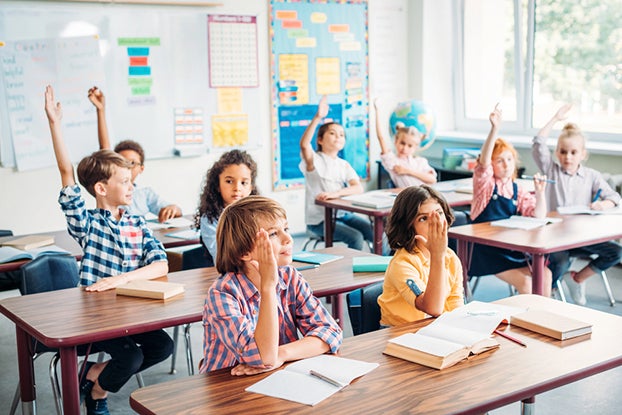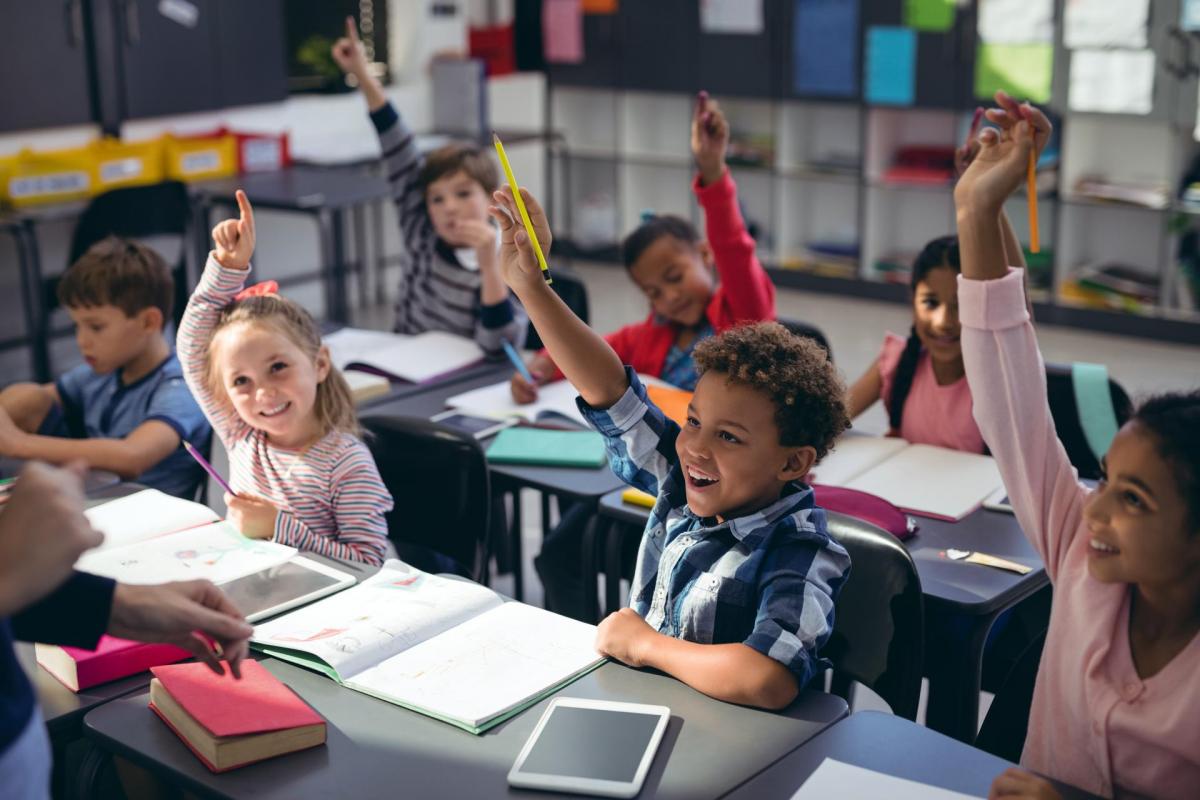How Private School education surpasses traditional learning
Wiki Article
Discovering the Conveniences of Kindergarten Programs: A Comprehensive Overview to Very Early Education
Kindergarten programs play an essential duty in shaping a child's early educational experience. They provide an organized setting where young students can establish important social skills, emotional durability, and cognitive abilities. These foundational skills are crucial as kids relocate into even more official education. Understanding how these programs add to a kid's growth reveals much about their long-term academic trajectory. What particular benefits do these very early experiences use, and exactly how do they affect a youngster's future?The Value of Social Skills Growth
While lots of elements of early education and learning concentrate on academic skills, the advancement of social skills in preschool programs is similarly crucial. Social abilities encompass the ability to connect effectively, work together with peers, and navigate social scenarios, all of which are vital for a child's general advancement. In kindergarten, kids find out to share, take turns, and resolve problems, fostering a sense of area and belonging. These experiences enable young learners to create relationships and develop empathy, preparing for favorable relationships in the future.Educators play an essential role in helping with social skill growth with structured tasks and assisted interactions. Through team tasks and play, youngsters exercise essential skills such as listening, discussing, and recognizing varied perspectives. Furthermore, these communications help youngsters construct confidence and self-esteem, important parts for their scholastic and personal journeys. Generally, nurturing social skills in preschool enhances children's experiences and prepares them for the complexities of social life beyond college.

Structure Emotional Strength in Youthful Learners
Building emotional durability in young learners is essential to their total well-being and success in various elements of life. Kindergarten programs offer an organized environment where kids can discover to browse their emotions successfully. Through assisted interactions and tasks, instructors assist children recognize and express their feelings, promoting a sense of self-awareness.These programs typically include approaches for coping with obstacles, such as problem-solving activities and role-playing circumstances that prepare kids for real-life situations. By motivating collaboration and empathy, young students establish strong social links, which are crucial for emotional support.
Teachers play an essential duty in modeling durability by demonstrating just how to manage stress and anxiety and adversity. As children observe these actions, they internalize important coping mechanisms, outfitting them to deal with future psychological problems with higher convenience. In general, nurturing psychological resilience in very early education lays a strong structure for lifelong psychological wellness and flexibility.
Enhancing Cognitive Capabilities Through Structured Knowing
As children take part in structured discovering experiences within preschool programs, their cognitive abilities are significantly boosted. These programs present age-appropriate tasks that boost important thinking and analytic skills. For example, hands-on activities such as problems and building blocks promote spatial awareness and logical reasoning.Moreover, interactive storytelling and team discussions foster language advancement, increasing vocabulary and comprehension. Via organized regimens, kids learn to follow instructions, enhancing their exec operating skills, which are necessary for future academic success.
Social interactions within these programs likewise play a substantial function, as youngsters learn to collaborate and communicate effectively, further improving cognitive development.
Additionally, including play-based learning enables kids to check out principles in an enjoyable and appealing means, enhancing their understanding and retention of understanding. Overall, organized knowing in kindergarten lays a strong foundation for cognitive growth, preparing kids for the obstacles of greater education.
Cultivating a Love for Lifelong Learning

Additionally, positive interactions with teachers and peers add to an environment where knowing is viewed as enjoyable and rewarding. This helpful environment assists impart inherent inspiration and strengthens the concept that education is a continual journey instead than a location.
As children find their rate of interests and strengths, they are most likely to seek understanding past the classroom, laying the foundation for a long-lasting commitment to knowing. Eventually, kindergarten programs play a crucial duty in shaping enthusiastic students that welcome academic chances throughout their lives.
Preparing for Future Academic Success
While foundational skills are important for very early students, preschool programs also play an important duty in preparing children for future academic success. These programs present necessary concepts such as literacy and numeracy, assuring that youngsters establish the cognitive abilities necessary for even more sophisticated learning. By engaging in structured activities, trainees improve essential thinking and analytical abilities, laying a strong foundation for their academic trip.Kindergarten fosters social-emotional advancement, enabling kids to navigate joint tasks and build relationships with peers. This collaborative setting instills a feeling of belonging and enhances self-confidence, which is necessary for scholastic determination.
Additionally, exposure to varied understanding experiences in preschool grows flexibility, furnishing kids to tackle numerous topics and difficulties in subsequent grades (Grade School Peoria). Eventually, by supplying a versatile early education, kindergarten programs ensure that youngsters are not only ready for first grade however additionally planned for continued scholastic success throughout their academic occupations
Frequently Asked Inquiries
What Age Is Perfect for Starting Kindergarten Programs?
The suitable age for beginning preschool programs is generally in between five and 6 years old. This age enables youngsters to create essential social, emotional, and cognitive abilities, preparing them for future scholastic success and individual development.How Do I Choose the Right Preschool Program for My Child?
To pick the best kindergarten program, one must take into consideration elements such as educational program, teacher credentials, class size, place, and the institution's philosophy. Observing the environment and celebration responses from other parents can likewise be valuable.Exist Any Kind Of State Demands for Kindergarten Registration?
Several states have particular demands for preschool enrollment, consisting of age restrictions and paperwork such as copyright or proof of residency (Private School). Parents ought to consult their local education authority to recognize the exact requirements in their locationWhat Should Parents Anticipate During a Common Kindergarten Day?
Throughout a normal preschool day, parents can expect structured tasks consisting of circle time, imaginative play, basic scholastic lessons, treat breaks, and social communication, all created to cultivate knowing and development in a caring atmosphere.How Can Parents Assistance Understanding in your home along with Kindergarten?
Parents can sustain finding out at home by participating in routine reading, including educational games, developing a regular routine, motivating interest with concerns, and producing a positive, nurturing environment that promotes exploration and imagination.Kindergarten programs play a pivotal role in shaping a youngster's very early academic experience. Kindergarten programs offer Kindergarten a structured setting where children can discover to navigate their feelings successfully. As kids engage in structured understanding experiences within preschool programs, their cognitive abilities are significantly boosted. By appealing youngsters in diverse tasks-- such as narration, hands-on experiments, and collective jobs-- kindergarten programs cultivate curiosity and expedition. While fundamental skills are crucial for very early learners, kindergarten programs also play a crucial duty in preparing youngsters for future scholastic success.
Report this wiki page